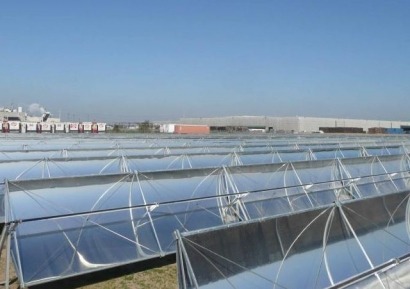
Abengoa’s new project will be constructed close to Pofadder, a city in the north of the Northern Cape Province, next to its KaXu Solar One, which is currently under construction.
These two 100 MW plants will jointly shape the largest solar complex in Africa. Xina Solar One will belong to a consortium, 40 % of which is controlled by Abengoa.
Other constituents of the consortium are the Industrial Development Corporation (IDC), the Public Investment Corporation (PIC), and KaXu Community Trust.
“This project once again illustrates the maturity of solar-thermal technology, which can be efficiently stored and used when it is needed," said Abengoa CEO Manuel Sánchez Ortega. "This clean and non-polluting energy will improve the future of our planet and will help to reduce countries’ energy dependency. We are extremely satisfied with the trust that has been placed in us by the South African government and the partners that accompany us in this project”.
The parabolic trough technology employs parabolic-shaped mirrors that are set on a structure so they can track the movement of the sun and concentrate solar radiation onto a receiving tube. Inside the tube, a heat-absorbing fluid flows and reaches high temperatures.
This fluid transfers the thermal energy to a heat exchanger, then is used to heat water into steam, which ultimately drives a turbine to generate electricity.
Additionally, the plant uses the thermal energy storage technology that with a set of thermal storage tanks filled with molten salts, gives the plant the ability to generate electricity after the sunset or in transitory cloudy periods, in addition to the ability to adapt energy production to the peaks of demand.
Xina Solar One will produce the clean energy equivalent to that needed to power approximately 90,000 households, thus preventing the emission of 315,000 tCO₂ annually. Additionally, the construction, operation and maintenance of the plant will stimulate regional socio-economic development by creating numerous direct and indirect jobs, as well as a supply chain that will foster economic growth in the country. Construction of the project is expected to begin in 2014.
For additional information:

